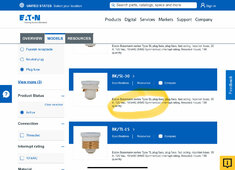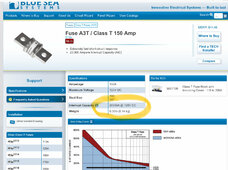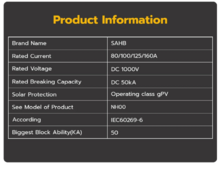Bluedog225
Texas
- Joined
- Nov 18, 2019
- Messages
- 2,917
What amp interrupt capacity do we need for a both a 12 volt LiFePO4 battery and a stack of 48 volt server rack batteries?
I ask mostly for my 12 volt system.
I see a class T gives us 20kAIC but an old fashioned plug fuse seems to give us 10kAIC. Though it’s entirely possible I’m comparing apples to bananas or I’m getting my units confused.
Wondering if these have a place in my system? Cheaper by a long way. A dim memory was that we needed to interrupt 6000 amps. But I don’t know how to calculate
Thanks


I ask mostly for my 12 volt system.
I see a class T gives us 20kAIC but an old fashioned plug fuse seems to give us 10kAIC. Though it’s entirely possible I’m comparing apples to bananas or I’m getting my units confused.
Wondering if these have a place in my system? Cheaper by a long way. A dim memory was that we needed to interrupt 6000 amps. But I don’t know how to calculate
Thanks






